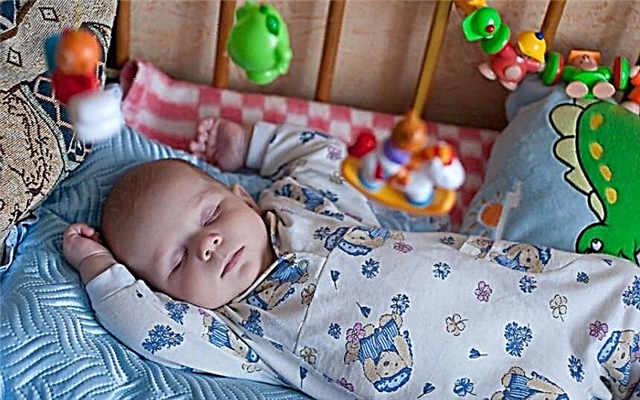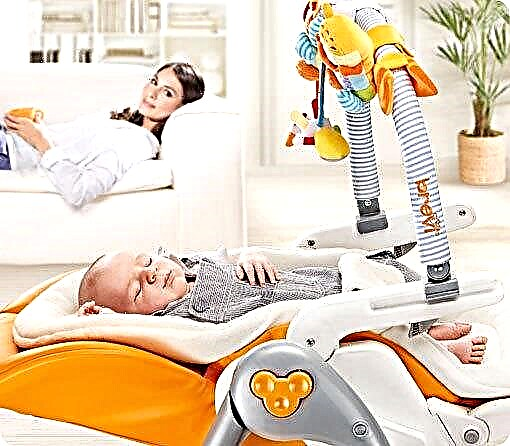New parents face many trials as their children grow up, especially in the first year of life. Among them is teething. How many of them should a child have at 1 year, not every mother knows.

One year old baby with teeth
How many teeth grow by the year
The very first teeth erupt at the age of about six months. During the first three years, 20 milk teeth grow. Further, with age, they change to indigenous.
It is quite difficult for the body to grow teeth. Therefore, one should not expect that this process will be completed quickly, within a month. It usually takes several years. The teeth grow in periods: when they are actively starting up, when they "calm down". To have an idea how many teeth a child should have per year, you should read the table below.
Table of the timing of the eruption of milk teeth
| Dental name | Teeth | The timing of their appearance |
|---|---|---|
| Ones | Central lower incisors | 6-10 months |
| Central upper incisors | 8-10 months | |
| Deuces | Lateral upper incisors | 9-13 months |
| Lateral lower incisors | 10-16 months | |
| Fours | First upper molars | 13-19 months |
| First lower molars | 14-18 months | |
| Triplets | Upper canines | 16-22 months |
| Lower canines | 17-23 months | |
| Fives | Secondary lower molars | 23-31 month |
| Second upper molars | 23-31 month |
Judging by this information, a one-year-old child already has two to four teeth.

Diagram of the appearance of milk teeth
Important! The above norm is conditional, average. How many teeth a child should have at 1 year, no one can say for sure. It depends on a number of individual factors, including nutrition and heredity. Some of the babies do not yet have a single tooth by their first birthday, while others are already starting to grow their first molars. Any number of them can be a variant of the norm.
Why teeth don't grow a year
There are many reasons why teeth do not grow in a year. Inexperienced mothers are worried when their child grows up not according to the book, but individually. In fact, it makes no sense to drive the baby under the average norms (which, by the way, are not ideal for any of the children).
It is impossible to deduce a universal recommendation when the first teeth will come out, how many should be in a child's year. There are too many unknown variables: what kind of life did the mother lead during pregnancy, how often the baby walked on the street, how well he absorbs vitamin D3, how he eats, and the like.
To reassure the parents, if there are still no teeth a year, an ultrasound scan can be done to make sure that there is no edentulousness (this is when the tooth buds are completely or partially absent). The well-known pediatrician Komarovsky urges mothers to just look less often into the baby's mouth and not be nervous for no reason.
Council. Also, you should not worry if your teeth grow in a chaotic manner, and not as described in the table above, this is also normal.
What affects the growth of teeth
The following factors have an impact on how quickly teeth grow:
- Heredity. If the baby's parents have teeth very late or, conversely, earlier than the norm, then, most likely, the child will follow in their footsteps.
- Ecology. If an infant lives in a clean, healthy environment, it will almost certainly develop more quickly. When living in a noisy and dirty metropolis - a little more slowly.
- Mom's lifestyle during pregnancy. What plays a role is what she ate, whether she took vitamins for the prevention of vitamin deficiency, where she lived, in what psycho-emotional situation she was.

Pregnant mom takes vitamins
- General condition of the body. Those children who have problems with endocrinology will acquire teeth later.
- Local factors. If the buds are deep in the jaw, it will take longer for them to erupt.
- Mineralization. In order for the jaw apparatus and skeletal system to develop, calcium, phosphorus and cholecalciferol are needed. If their assimilation is difficult, development will proceed more slowly.
- Nutrition. It is important that all the above-mentioned trace elements enter the body with food and supplements.
- Developmental pathologies. This can include adentia, which was discussed earlier, and rickets, and other health problems.
In any case, if the parent has any suspicions, he should see a doctor for an examination.
Signs of teething
Many doctors, calming worried mothers, ask them if they often see children at 2-3 years old with no teeth at all. This really happens very rarely. Therefore, it is best for parents to calm down and wait for the bites to erupt themselves. You can understand that this will happen very soon by the following signs:
- Redness and swelling of the gums. Normally, it is dense, quite hard. When a tooth grows through it, it swells, becomes loose.
- Itching. The baby begins to gnaw at everything it can reach. Hands, feet, toys, furniture - everything that you can use to scratch your gums goes into your mouth.
- Pain. The baby cannot say that his gums hurt because of his age. It is possible to determine what hurts him by indirect signs. As a rule, in this case, babies begin to often and strongly be capricious, they eat worse. Often they wake up day and night, crying. Hysterics can happen out of the blue.

The baby is crying
- Increased salivation. Swollen gums become inflamed. In response to this, the body gives out a reaction in the form of increased secretion of the salivary glands.
- Stool change. Due to the fact that there is too much saliva in the mouth, and it flows down the esophagus into the stomach, digestive upset may occur.
- White point on the gum. If it appears, then already when the tooth is almost erupted.
Note! All these signs can be manifested both in combination and one at a time. Perhaps the emergence of some of its own, individual signs. For example, some children react to teething with temperature.
When to see a doctor
In the year of the baby, it is time to visit the pediatrician and dentist. They can be asked questions of interest that relate to the timing of teething. You can contact a specialist at other times - earlier or later than a year, if there is evidence for that.
If the crumbs have a temperature for a long time due to growing teeth, it is imperative to call a pediatrician. Perhaps, against the background of reduced immunity, the child contracted some kind of disease.
If the parent suspects that the tooth has been erupting for too long (from 2 months), but there are no changes, it is recommended to make an appointment with the dentist. Perhaps the baby has a pathologically tight gum, which the tooth cannot break through on its own. In this case, you will need surgery. The tissue will be excised over the growing rudiment.

Baby at the dentist at the reception
If the one-year-old crumbs have not yet begun to erupt their teeth, but the doctors consider the child to be completely healthy, then you just need to wait. Of course, following all medical prescriptions and visiting specialists at the appointed time. By the age of three, the baby should have all 20 milk teeth.
How to ease teething
Teething is usually accompanied by discomfort. Toothache is difficult for an adult, and even more difficult for a child. Therefore, it is so important to know how to properly facilitate this process:
- Get yourself teething. These are toys made of plastic, rubber or wood that have many different bulges. They will be convenient for the baby to scratch the gums. Some rodents have water inside, they can be frozen before giving to the child.
- Use pain relieving gels and ointments. Examples of these can be "Kalgel" and "Holisal" - the two most popular drugs among Russian mothers. Their action can be supplemented by homeopathic remedies, such as Viburcol candles or Dantinorm Baby drops from Boiron.

Teething medications
- Have pain relievers on hand. If the baby does not sleep because of toothache at night, it is better to give him a dose of Nurofen, Panadol, Efferalgan or the like.
Growing a tooth is something that the body must be able to do by itself by nature. Parents are only required to monitor the child's condition and follow medical recommendations.



